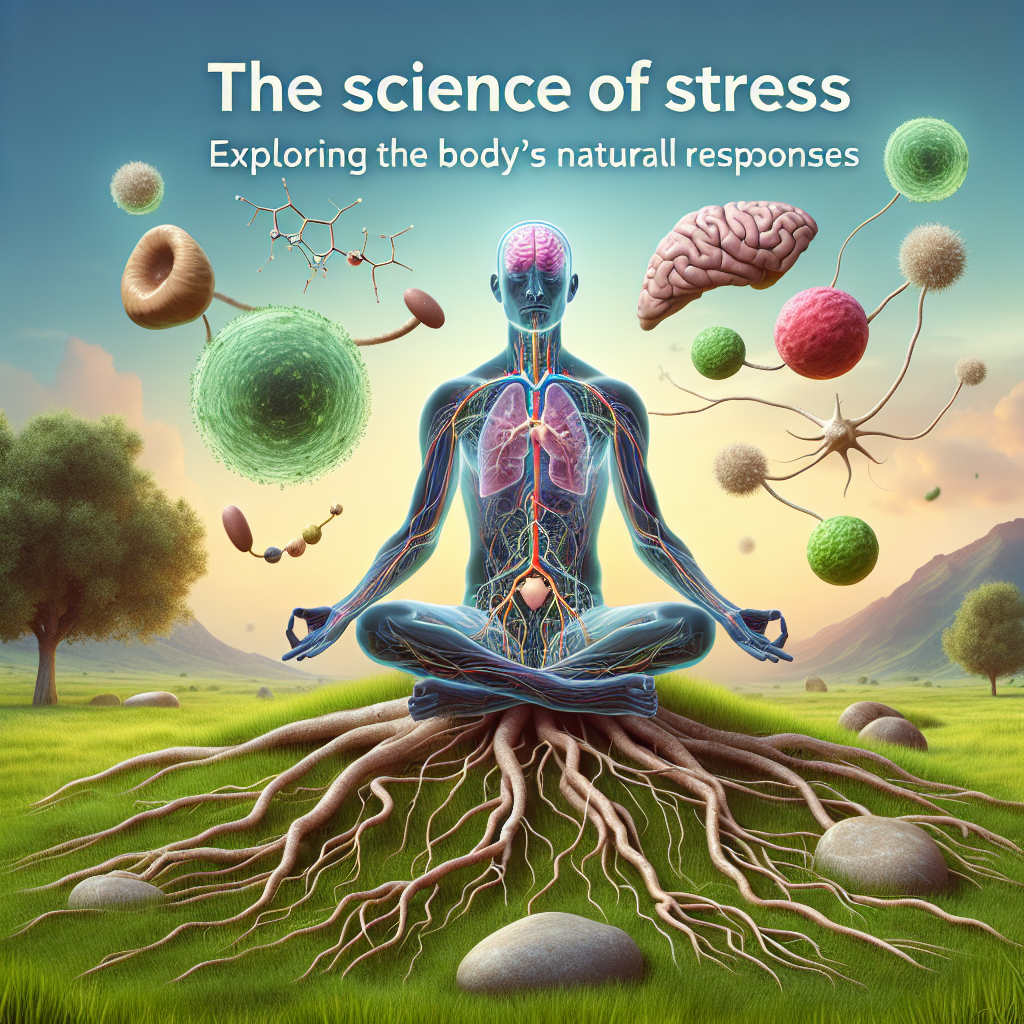Introduction
In an age where stress seems to be a constant companion, understanding its intricate science has never been more essential. The Science of Stress: Exploring the Body’s Natural Responses unveils the layers behind our body’s reactions to pressure, which can sometimes feel overwhelming. Imagine your body as a finely tuned orchestra, where each section plays its part in response to the cues it receives. Stress, often viewed negatively, is merely a conductor; understanding its role can help us harmonize our responses to life’s challenges.
Understanding Stress: A Multi-Dimensional View
What Is Stress?
Stress is the body’s reaction to any change that requires an adjustment or response. The Science of Stress: Exploring the Body’s Natural Responses begins with identifying the types of stress:
- Acute Stress: Short-term stress often triggered by immediate challenges, like public speaking.
- Chronic Stress: Long-term stress resulting from ongoing pressures such as financial troubles or demanding jobs.
| Type of Stress | Duration | Causes | Effects |
|---|---|---|---|
| Acute Stress | Short | Immediate challenges | Increased heart rate, quick thinking |
| Chronic Stress | Long | Ongoing pressures | Anxiety, fatigue, health problems |
The Biological Mechanisms at Play
The Stress Response System: A Deep Dive
When faced with stress, the body activates the hypothalamic-pituitary-adrenal (HPA) axis, leading to a cascade of hormonal changes:
- Release of Cortisol: Known as the "stress hormone," cortisol increases blood sugar and suppresses the immune system.
- Adrenaline Surge: This hormone prepares your body for a "fight or flight" response, increasing heart rate and energy.
The Science of Stress: Exploring the Body’s Natural Responses reveals how this ancient mechanism, shaped through evolution, is still very much active in our modern lives.
Case Study: The Workplace Stress Project
In a recent workplace study, employees were monitored for stress levels related to different types of job demands. With the introduction of a wellness program focusing on coping strategies, participants reported a significant decrease in stress levels, demonstrating the impact of understanding and managing stress.
Psychological and Emotional Dimensions
The Role of Perception in Stress
Stress is not solely a physiological response; it is profoundly influenced by psychological factors. How we perceive stress can dramatically alter our body’s responses. Understanding this aspect is crucial in The Science of Stress: Exploring the Body’s Natural Responses.
- Positive Stress (Eustress): Triggers motivation and focus, enhancing performance.
- Negative Stress (Distress): Leads to overwhelming feelings, decreased productivity, and health issues.
| Type of Stress | Effect | Examples |
|---|---|---|
| Eustress | Motivational, positive | Starting a new job |
| Distress | Overwhelming, negative | Loss of a loved one |
How to Shift Your Mindset
Cognitive Behavioral Therapy (CBT) techniques can help individuals reframe their perceptions of stress. Simple strategies, such as mindfulness and positive affirmations, can effectively alter one’s stress response.
Physiological Responses: The Body’s SOS
Immune System Impact
Chronic stress can significantly suppress the immune system, leaving the body vulnerable to illnesses. The Science of Stress: Exploring the Body’s Natural Responses highlights research linking stress with inflammation and autoimmune disorders.
Case Study: Stress and Immune Functioning
A study examining subjects coping with long-term stress revealed weakened immune responses. After instituting relaxation techniques, participants showed a remarkable improvement in immune functioning, further emphasizing the body’s resilience when supported properly.
Practical Applications: Managing Stress Effectively
Mindfulness and Stress Reduction
Understanding the body’s responses opens pathways to better manage stress. Mindfulness meditation has been proven to reduce cortisol levels and enhance overall well-being. Incorporating mindfulness practices can alter our stress response by promoting relaxation and clarity.
| Mindfulness Technique | Benefits |
|---|---|
| Deep Breathing | Reduces acute stress response |
| Guided Imagery | Enhances relaxation and positivity |
| Progressive Muscle Relaxation | Alleviates physical tension |
Case Study: Mindfulness in Schools
In educational settings, implementing mindfulness programs has shown significant improvements in students’ stress levels and academic performance, illustrating the effectiveness of proactive strategies.
Community and Social Support
Building Resilience Through Connection
Human beings are social creatures. One of the most significant buffers against stress is a robust support system. The Science of Stress: Exploring the Body’s Natural Responses underscores the importance of relationships in managing stress.
- Social Interaction: Engaging with friends and family can mitigate stress.
- Community Involvement: Participating in community activities fosters a sense of belonging and support.
Conclusion
The Science of Stress: Exploring the Body’s Natural Responses is an intricate tapestry woven from biological, psychological, and social threads. By understanding stress from multiple dimensions, we can harness its potential benefits while mitigating its negative impacts. Empowering ourselves with knowledge is the first step toward resilience.
FAQs
-
What is the difference between acute and chronic stress?
- Acute stress is short-term and often related to immediate challenges, while chronic stress persists over a longer period and can lead to significant health issues.
-
Can stress be beneficial?
- Yes, stress can motivate and enhance our performance when viewed positively (eustress).
-
How can mindfulness help manage stress?
- Mindfulness practices can lower cortisol levels, promote relaxation, and help individuals better cope with stressors.
-
What role does social support play in stress management?
- Strong social connections provide emotional support, reduce feelings of isolation, and enhance resilience against stress.
- Are there long-term effects of chronic stress on health?
- Yes, chronic stress can lead to various health issues, including cardiovascular problems, weakened immune system, and mental health disorders.
By diving into The Science of Stress: Exploring the Body’s Natural Responses, we empower ourselves to not only manage stress but to transform it into a tool for personal growth. The journey toward a stress-resilient life begins with understanding and harnessing the body’s natural responses.

